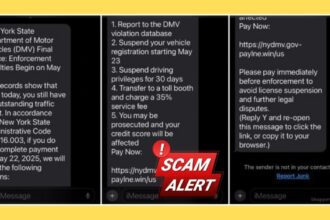In recent months, countless Americans have reported receiving persistent calls from entities identifying themselves as the “Tax Relief Group” or similar variations. These calls promise to eliminate tax debt through supposed government programs, leaving many wondering if these offers are legitimate. This article investigates the alarming rise of tax relief scams, how to identify them, and what to do if you’ve been targeted.
Overview of the Tax Relief Group Scam Calls
The landscape of tax-related scams evolves each year, with the IRS regularly updating its “Dirty Dozen” list of tax scams to watch for. In recent years, tax relief service scams have become increasingly sophisticated, with organized operations targeting vulnerable taxpayers through automated calling systems that can reach thousands of potential victims daily.
According to data from the Treasury Inspector General for Tax Administration (TIGTA), tax-related scam attempts have increased by over 30% in the past two years alone. These operations often intensify during tax season but continue year-round, exploiting anxiety around tax obligations to extract money and personal information from unsuspecting victims.
What makes these scams particularly effective is their ability to create a sense of both urgency and hope – claiming you owe back taxes (triggering fear) while simultaneously offering an easy solution (providing relief). This psychological manipulation drives many to engage with these scammers despite initial reservations.
How the Scams Operate
The “Tax Relief Group” and similar operations follow a well-established playbook designed to appear legitimate while avoiding detection:
1. Initial Contact Phase
The scam typically begins with an unsolicited robocall that leaves a voicemail with messaging like:
Hello, it’s [agent name] with the Tax Relief Group. My phone number is [number] and it looks like you owe some back taxes. I’m calling to let you know that you can now apply for them to be forgiven with the zero tax forgiveness program. Again to be put on our do not call list please call back and press two. Excited to talk to you.
These calls come from different spoofed phone numbers each time, making them difficult to block. The operation uses various business names – Tax Relief Experts, Tax Relief Center, Tax Relief Fund, Real Tax Advisors – but maintains consistent messaging about tax forgiveness programs.
2. Escalation Phase
If you call back, you’ll speak with a live “agent” who will:
- Claim they can reduce or eliminate your tax debt through special programs
- Request personal information including your Social Security Number
- Charge an initial fee (often $129-$500) for an “investigation” or “qualification assessment”
- Create artificial urgency by suggesting the offer is time-limited
3. Extraction Phase
After collecting the initial payment, the scammers will:
- Either disappear completely with your money and information
- Or claim your case is “more complex than anticipated” and demand substantially larger payments
- Never actually file any legitimate paperwork with the IRS
- Ignore requests for refunds or become unreachable
These operations often cycle through different phone numbers, business names, and even personnel to avoid detection while continuing to target the same victims repeatedly.
Types of the Scams
Tax relief scams come in several variations, all designed to separate you from your money:
1. Offer in Compromise (OIC) Mills
These scams focus on the legitimate IRS Offer in Compromise program, which allows qualified taxpayers to settle their tax debt for less than the full amount under specific circumstances. Scammers falsely guarantee acceptance into this program despite knowing most applicants don’t qualify. They charge hefty fees for “application assistance” but submit inadequate or incorrect paperwork that the IRS will reject.
2. Zero Tax Forgiveness Program Scams
This entirely fictional program is frequently mentioned in scam calls. No such program exists with the IRS, yet scammers claim this “special initiative” can eliminate your tax debt entirely. They may cite recent legislation or executive orders to make their claims sound legitimate and timely.
3. Tax Preparation Fraud
Some tax relief scammers also offer tax preparation services, where they promise maximum refunds by filing fraudulent returns with false deductions, credits, or income information. This not only results in paying fees to the scammer but can leave victims liable for penalties, interest, and even criminal charges when the IRS discovers the fraud.
4. Identity Theft Operations
Many “tax relief” scams are primarily focused on collecting personal information like Social Security Numbers, banking details, and other sensitive data. This information is then used for identity theft or sold to other criminal operations on the dark web.
Red Flags That Signal a Fake Tax Relief Calls
Protecting yourself starts with recognizing these common warning signs:
1. Unsolicited Contact
The IRS never initiates contact with taxpayers through phone calls, emails, or text messages. Their first communication is almost always through official mail sent via the U.S. Postal Service. Any unsolicited call claiming to be from or affiliated with the IRS should immediately raise suspicion.
2. Pressure Tactics and Urgency
Legitimate tax resolution services don’t use high-pressure sales tactics or create artificial deadlines. Scammers often claim “this program is ending soon” or “you must act now to avoid severe penalties” to prevent you from taking time to research their claims.
3. Guaranteed Results
No legitimate tax professional can guarantee specific results when dealing with the IRS. The actual Offer in Compromise program has strict qualification requirements, and only about 40% of applications are approved. Anyone promising they can “definitely” reduce your tax debt is misrepresenting reality.
4. Upfront Fees
While legitimate tax professionals may charge for their services, demanding substantial upfront payments before any work is done is a significant red flag. This is especially true if they refuse to provide a detailed contract or clear explanation of their fee structure.
5. Simplified Qualification Process
Legitimate tax relief requires thorough financial assessment. If someone pre-qualifies you without reviewing your complete financial situation, they’re not following proper protocols. The IRS bases debt settlement decisions on detailed financial analysis that can’t be bypassed.
6. Multiple Name Variations
Frequent name changes or using similar but slightly different business names (Tax Relief Group, Tax Relief Center, etc.) is a tactic used to avoid negative reviews and continue operations after being reported to authorities.
How to Protect Yourself From Fraudulent Tax Relief Group’s Call
Taking proactive steps can help shield you from becoming a victim:
1. Never Engage With Unsolicited Calls
- Let unknown calls go to voicemail
- Do not call back numbers left in suspicious voicemails
- Never press buttons as instructed in automated calls, even to “remove yourself from call lists”
- Block numbers but understand scammers will simply use new ones
2. Verify Tax Status Directly With the IRS
If you’re concerned about potential tax issues:
- Check your tax status directly through the official IRS website (IRS.gov)
- Call the IRS directly at 1-800-829-1040
- Create an account on the IRS website to view your tax records
- Request an in-person appointment at a local IRS office
3. Use Call-Blocking Technology
- Enable “Silence Unknown Callers” on iPhones or similar features on Android devices
- Use carrier-provided call protection services like AT&T Call Protect, T-Mobile Scam Shield, or Verizon Call Filter
- Consider third-party call-blocking apps with scam detection capabilities
4. Research Before Engaging
If you’re genuinely seeking tax relief:
- Check the Better Business Bureau for company reviews
- Verify credentials of tax professionals through the IRS Directory of Federal Tax Return Preparers
- Ask for recommendations from trusted sources like your accountant or attorney
- Consult the IRS’s official guidance on selecting tax professionals
What To Do If You’ve Been Targeted
If you’ve already engaged with a suspected tax relief scam, take these steps immediately:
1. If You Provided Personal Information
- Place a fraud alert on your credit reports with the three major credit bureaus
- Consider a credit freeze for maximum protection
- Monitor your accounts for suspicious activity
- Change passwords for any financial accounts
- File an identity theft report with the FTC at IdentityTheft.gov
2. If You Made Payments
- Contact your payment provider (credit card company, bank, etc.) to dispute the charges
- Report the fraud to your financial institution
- Document all communications with the scammer
- Change any compromised account information
3. Report the Scam
Report tax-related scams to:
- The Treasury Inspector General for Tax Administration (TIGTA) at 800-366-4484 or TIGTA.gov
- The Federal Trade Commission at FTC.gov/complaint
- Your state’s Attorney General’s office
- Forward suspicious emails to [email protected]
- Report the phone number to your cellular carrier’s spam reporting system
Legitimate Tax Relief Options
If you genuinely need help with tax debt, legitimate options exist:
- Installment Agreements: The IRS offers payment plans that allow you to pay your tax debt over time
- Offer in Compromise: This program does exist but has strict qualification requirements
- Currently Not Collectible Status: If you can prove financial hardship, the IRS may temporarily suspend collection activities
- Penalty Abatement: In some cases, the IRS may remove penalties if you can show reasonable cause
- Tax Professionals: Enrolled Agents, CPAs, and tax attorneys can provide legitimate representation
The key difference is that you must initiate contact with these services rather than them cold-calling you.
Frequently Asked Questions
1. Is any call from a “Tax Relief Group” legitimate?
No. The IRS does not authorize private companies to call taxpayers on their behalf regarding tax debt relief. Any unsolicited call claiming to offer tax relief services should be considered suspicious, especially if they claim to have information about your tax situation without you having contacted them first.
2. What if I do owe back taxes? Could these calls be related?
Even if you do owe back taxes, the IRS communicates through official mail first, not phone calls. Private companies have no way of knowing your tax status unless you’ve shared that information with them previously. These calls are sent to thousands of people regardless of their actual tax situation.
3. Can I get on a “Do Not Call” list to stop these calls?
While legitimate telemarketers must honor the National Do Not Call Registry, scammers ignore it completely. Pressing buttons on these calls to allegedly remove yourself from their list actually confirms your number is active, potentially increasing calls. Your best option is to block numbers and not engage.
4. What if the caller knows my name or the last four digits of my Social Security Number?
Unfortunately, due to numerous data breaches, scammers can obtain basic personal information. Having this information doesn’t make them legitimate. In fact, they may use known information to build trust before asking for more sensitive details.
5. Can I get my money back if I paid a tax relief scam?
It depends on how you paid. Credit card payments can often be disputed if reported promptly. Wire transfers, gift cards, cryptocurrency, or cash payments are usually unrecoverable. Report the fraud immediately to your financial institution and relevant authorities to explore your options.
Conclusion
The “Tax Relief Group” and similar operations represent a sophisticated, evolving scam targeting vulnerable taxpayers. By understanding their tactics and recognizing warning signs, you can protect yourself from becoming a victim. Remember that the IRS initiates contact through official mail, not phone calls, and that legitimate tax relief requires direct engagement with the IRS or properly credentialed tax professionals.
If you’re concerned about tax obligations, reach out to the IRS directly or consult with qualified tax professionals like CPAs, Enrolled Agents, or tax attorneys. With vigilance and proper information, you can navigate tax challenges safely while avoiding predatory scams that could compound your financial difficulties.
Remember: if it sounds too good to be true—especially regarding tax forgiveness—it almost certainly is.









































